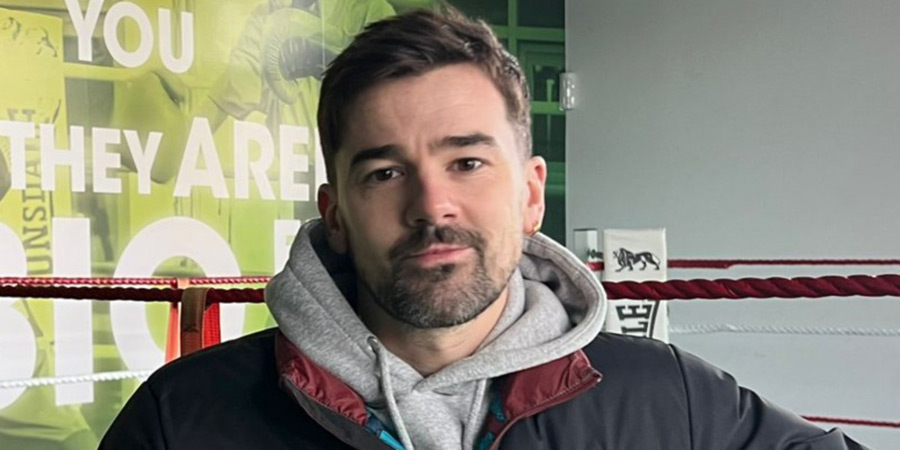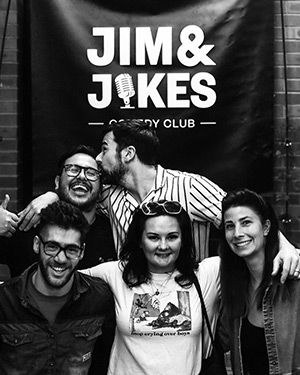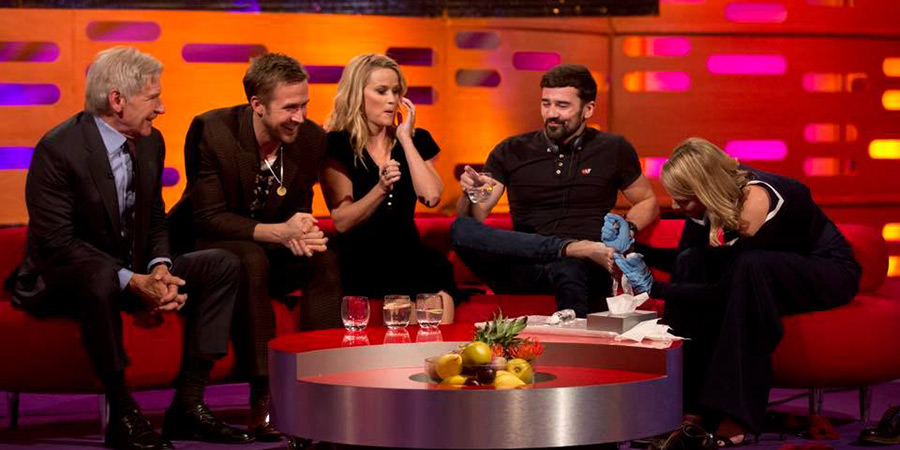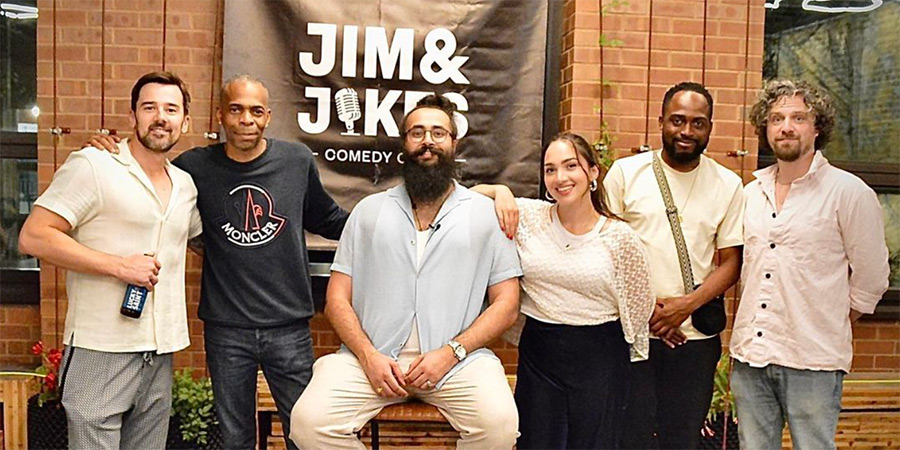My Comedy Career: Adam Horton

Producer, director and live comedy promoter Adam Horton gives us an insight into his work life...
Tell us what you do in your job.
I am a freelance producer and director across broadcast TV, digital and branded content. On the side, I run Distilled Comedy, a series of live comedy nights across various London venues.
My TV work has included The Graham Norton Show, The Russell Howard Hour, and I helped take The Chris & Rosie Ramsey Show from podcast to TV series.
My work with brands has covered everyone from Nike and Adidas to Amazon and Diageo, as well as social first content for established names like LADBible.

As a live comedy events promoter, I launched Jim & Jokes in Stratford last year, and this year I am expanding with Scrambled at Mercarto Metropolitano in Elephant & Castle, Krafty Komedy in Dalston, the Tottenham Comedy Club and at the legendary Aces & Eights in Tufnell Park.
How did you first get involved in the comedy industry?
I cracked into comedy as a researcher in the UK version of Impractical Jokers. I then pretty much stuck with comedy shows for a decade, before applying my skillset in the digital and brand space.
What key skills do you need to be able to do your job well?
Resilience, energy and enthusiasm. If you don't have those core traits, then the entertainment industry is not for you.
If you have those traits however, and can combine them with great people skills, an eye for industry trends (especially important in the content creation world!) and an innate creativity, it can be incredibly rewarding.
If you are a creative producer and/or director, I would always advise adding at least one technical skill to your armoury - learn Adobe Premier, get good with a camera.
Wearing multiple hats is an increasing necessity.
What has been your biggest career achievement to date?
Co-writing and co-directing Get Some, a short film with my brother Joe that played at BFI London Film Festival. Creating a piece of work from scratch with my brother with our mum and dad in the audience, at one of the world's biggest and best film festivals... nothing beats that feeling - not even directing Jim Carrey or getting Margot Robbie to tattoo my toe! (In front of Ryan Gosling, no less! Which feels like a form of cuckoldry in the Barbie/Ken world!)

And what has been the biggest challenge/disappointment?
At the end of 2022, I was working on a high profile project with a big name talent, that ultimately came to nothing. While the experience was crushing, it turned out to be hugely motivating. As a result, I diversified my skillset, got off my arse to launch my first comedy night and started DJ'ing (as a bloke in his 30s it was either learn to DJ, pick up an age-inappropriate drug habit or get into Carp Fishing... I chose the cheaper hobby!).
Talk us through a typical day.
I start the day with a flurry of emails over breakfast taking care of any live event organising I have coming up. This could be booking talent, advising on technical issues at the venues or planning the promotion and social strategy.
Then it's off to whichever production company I am freelancing at where invariably I will be writing up a script, storyboarding, booking talent, pitching ideas for a new project or giving notes on an edit. Sometimes all those things in the same day!
Around 6pm, I will catch up on any live event developments that have occurred during the day and head to whatever live comedy show I have on that night, where I will manage the acts and do what I can to make sure everything runs smoothly.
If there are no live events, I go home, go to the gym and walk the dog.
For work-life balance, I have blended the two. I like to be fully focused on whatever content production company I am working for during the day but, in the evening, the things I would do to have fun would be to go to a comedy show, or, on a weekend, go to a few bars.
By running comedy shows and DJ'ing, I have made those fun activities into work activities. It's tiring though, so I always make time for some daily exercise and some quality quiet time with my wife carved into the diary.
Tell us a trick/secret/resource that you use to make your job quicker/easier.
Work in sprints and don't try to multi-task. 20-30 minutes focused on one task, is way more effective than 2 hours trying to do four different things.

How are you paid?
My yearly income tends to be a mix of fixed term PAYE contracts and invoicing for fully freelance jobs.
At producer level, day rates can vary wildly depending on experience level and what genre you are working in (broadcast, branded, digital) - anywhere from £200 per day, to £500 p/d.
It can be a feast or famine industry though, depending on time of year. January, February and into March are notoriously bleak months, so squirrelling money away to get through that period is key.
If you could change one thing about the comedy industry, what would it be?
It can too often cater to what I would refer to as 'The Guardian-class'. Comedy is much more universal than that one little niche group of (overly!) influential people.
Look at the rise of people like Adam Rowe, Fin Taylor, Red Richardson. They have done some work in the mainstream but their greater following has come from the material they have been in charge of, with little interference.
I would love commissioners and execs to become less afraid of getting the odd complaint from some viewer with too much time on their hands, and utilise their resources to elevate and give free reign to these more independently spirited creators.
What tips would you give for anyone looking to work in your area of the industry?
Graft, and be willing to do whatever it takes to get in with a production company: Make coffee & tea (and do it well! You'll be surprised how far a decently made cuppa can take you!), run errands, ask to do some shadowing.
When you do a get a chance to do something, remember that 'doing a good job, will get you good jobs'. A cheesy maxim, but it's true.
Actually be willing to go into the office to work. Visibility and inter-personal relationships make a huge difference. The work from home thing is a great option to be used maybe once or twice per week, but creativity needs atoms bouncing off each other to get fission going! Working in a silo can be great for certain tasks, but you never know what idea an unexpected conversation can lead you to.
To progress, I would say: remember, the industry is always evolving so move with people's viewing habits. Don't get stuck in old ways of thinking. At the same time, don't be afraid to bring in and repackage methodology from the past, to see how it can be applied in a modern setting.
Follow Distilled Comedy on Instagram for news of the club's regular nights and special events. @distilledcomedy
This article is provided for free as part of BCG Pro.
Subscribe now for exclusive features, insight, learning materials, opportunities and other tools for the British comedy industry.


